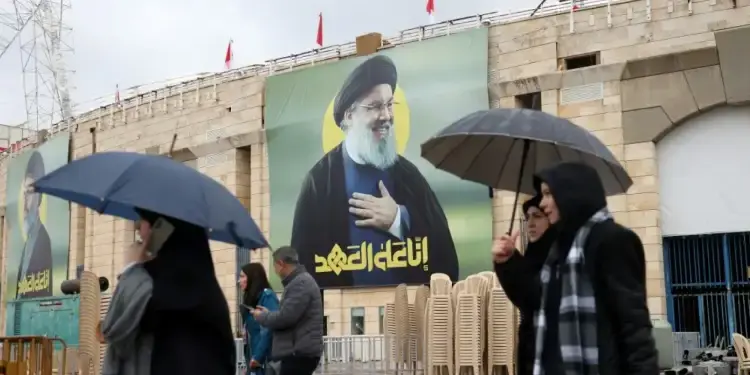Beirut vibrated this Sunday, February 23, at the rate of an extraordinary tribute. Tens of thousands of Hezbollah supporters, draped in black, invaded the sports city to salute the memory of Hassan Nasrallah, former chief of the Shiite movement, killed five months ago in an Israeli strike.
A compact crowd, banners with avenging slogans, a setting up to the character: the event had everything of a political manifesto as much as a farewell.
Hezbollah, a key actor in the Lebanese landscape, had chosen its moment. It was only after the almost total withdrawal of Israeli troops in southern Lebanon, on February 18, that the organization decided to orchestrate this great gathering – the first since the end of the last confrontation with Israel. The message was clear: war did not buried the resistance.
From Tehran, Ayatollah Ali Khamenei spoke through a press release, hammering that the fight against Israel would not stop. “The enemy must know that our fight will continue until its ultimate goal,” he said, taking up a curled speech.
In front of the crowd, Nasrallah’s successor, Naïm Qassem, wanted to reassure his own. “He is still with us,” he said, while giant screens broadcast his speech. “We will continue this path, we will not give in. His words were accompanied by a deaf rumble in heaven: Israeli planes flew over the capital, a silent and threatening challenge.
The context remained electric. A few hours before the ceremony, the Israeli army struck southern Lebanon, evoking “imminent threats”. A ceasefire has been well in place since November 27, but in this region, truces often look like simple breaks.
In a sharp statement, the Israeli Defense Minister has buried the point. “Whoever threatens to destroy Israel will sign his own end,” he warned. A warning that sounds like a promise of new thunderstorms to come.








